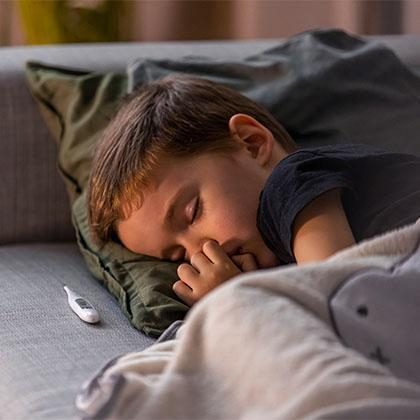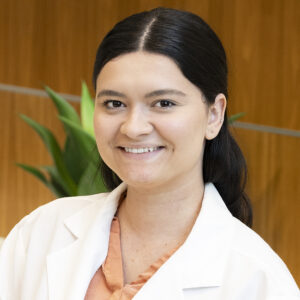
Preventing and Managing Childhood Illnesses: Tips for Parents

As parents, we all want to keep our children healthy and happy. When illness strikes, it's natural to feel concerned. At Schneck Pediatrics, we're here to support you through these challenging times. This guide will help you understand common childhood illnesses, recognize important symptoms and take preventive measures. We'll also provide guidance on when to seek medical attention, offering you peace of mind as you care for your little ones.

Understanding Common Childhood Illnesses
Children often encounter various illnesses as their immune systems develop, particularly in daycare and school settings. Being familiar with these common conditions can help you respond effectively when your child isn't feeling well. Let's explore some of the most frequent childhood illnesses.
Colds are incredibly common in children, especially as they start daycare or school. IN fact, it's normal for young children to have 6-8 colds a year! While they're unavoidable and a natural part of building immunity, they can still be uncomfortable for your little one.
Both colds and flu are caused by viruses, but there are some key differences:
- Colds typically come on gradually and mainly affect the nose and throat. Symptoms often include runny nose, congestion, cough and mild fatigue.
- Flu tends to hit more suddenly and severely. It often brings fever, body aches, extreme fatigue and sometimes vomiting or diarrhea in children.
Rest, plenty of fluids and over-the-counter children's cold and flu medicines can help manage symptoms for both conditions. However, if fever persists for more than five days, exceeds 104°F(40°C), or if you notice concerning symptoms like difficulty breathing or persistent vomiting, please contact us right away.
Ear infections often occur when fluid builds up behind the eardrum, frequently following a cold. Signs to watch for include:
- Ear pain or tugging at the ears
- Difficulty hearing or responding to quiet sounds
- Fever
- Irritability or crying more than usual
- Trouble sleeping
- Balance issues or clumsiness
While some mild ear infections may resolve on their own, it's important to have your child examined if you suspect an ear infection. Early treatment can prevent complications and provide relief for your child. If you notice any of these symptoms, especially persistent ear pain or fever, we recommend scheduling an appointment with us at Schneck Pediatrics. Our providers can properly diagnose the infection and, if necessary, prescribe appropriate treatment such as antibiotics.
Remember, ear infections can be painful and potentially impact your child's hearing if left untreated. Don't hesitate to bring your child in for an evaluation - we're here to help ensure your little one's comfort and well-being.
Stomach bugs, often caused by viruses like Norovirus, can lead to nausea, vomiting, diarrhea and stomach cramps. Dehydration is a common concern, so encouraging fluid intake is crucial. While there's no specific treatment for stomach bugs, symptoms with rest, hydration and sometimes children's pain and fever medication can help your child feel more comfortable.
Recognizing these symptoms early can help you take prompt action. Remember, every child is unique and you know your child best. If you're ever unsure about your child's symptoms or condition, don't hesitate to reach out to us at Schneck Pediatrics.
Effective Preventative Measures
While we can't prevent every illness, there are several steps you can take to promote a healthy household:
- Keep up with vaccinations to protect against serious illnesses
- Encourage good hygiene practices, like regular handwashing
- Maintain a clean home environment with good air quality
- Provide a balanced diet rich in nutrients to support the immune system.
- Establish routines for proper rest, regular meals and adequate sleep
We're happy to discuss additional preventive strategies tailored to your family's needs during your next visit.
When to Seek Medical Care
Knowing when to consult a healthcare provider can be challenging. In general, it's advisable to seek medical attention if your child has a high fever, persistent pain, or symptoms that don't improve with home care within five days. If fever exceeds 104°F(40°C), please contact us immediately. For children with underlying health conditions, earlier consultation is often recommended. Remember, we're here to provide guidance and support whenever you have concerns about your child's health.


Kristin Sanders, MD
Pediatrics View Info »
Rachel Hoevener, FNP-C
Pediatrics View Info »
Cassandra Gilpin, PA
Pediatrics View Info »
Kaitlin Powell, LMHC, NCC
Licensed Mental Health Counselor View Info »Count on Schneck
Schneck Pediatrics is a partner in your family's health journey. Our providers are always ready to assist you and your little ones with any concerns. From advice on managing common illnesses to providing vaccinations and check-ups, we are here. We understand the unique needs of families in our community and strive to offer compassionate, personalized care. For more information or to schedule an appointment, please contact us today. Let's work together to keep your children healthy and thriving.



